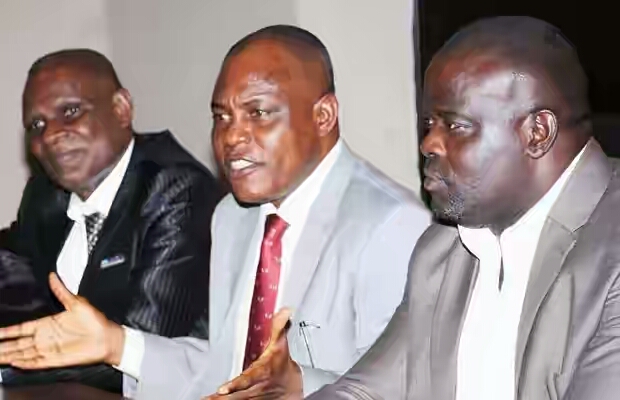Road transporters in Nigeria have cried out over the Central Bank of Nigeria’s new cashless policy regime that attracts percentage charge for cash deposit above three million naira.
Chairman of the Peace Mass Transit Limited, Dr Samuel Maduka Onyishi, who expressed concern over the issue, called on the federal government to review it.
Onyishi spoke in Enugu at a press conference where he showcased the ‘2016 best customer in Nigeria’, courtesy of the Japanese automaker, Toyota.
He stated that road transporters should be exempted from the policy since they serve the down trodden, who normally dealt with cash.
The transporter stated that the policy which attracts three percent of the sum had added to the burden of road transporters, since over 95 percent of Nigerians who travel by road would pay cash at the point of departure.
“Most of the people that patronize us are rural men and women who may not have any business with banks not to do transactions online.
“They are not like those in the aviation or shipping sectors that believes it is easier to transact online. So when they pay us cash and we go to deposit the money and pay percentage on the money, means extra charges on us and we think the federal government should look into it”, he said.
Onyishi also called for more support of federal government to the road transporters, stressing that it was unfair to continue to bail out the aviation and shipping sectors without any support to road transporters when several Nigerians travel by road.
“When government gives funds to the aviation and shipping sectors, such gestures should be extended to the road transporters.
“You cannot continue to give funds airlines when they are in need and not asking those in the road transporters how they are coping knowing that we are also contributing to the development of the economy and that our spare parts are sourced from abroad using foreign exchange.
“Now, we collect money in naira and when we want to buy spare parts we buy in dollar.
“For some time now, there has been scarcity of dollar and dollar increase and this is telling on transporters. Most of us can no longer buy new vehicles because the price is high. There are
many who have to lay off their workers because of the recession as they can no longer meet with increasing demands. But what I am saying is that we should also be part of government’s plan to boost the economy”, he said.
He stated that since inception, the company had strived to enhance safety standards of Nigerians who travel by road introducing the speed limit device, compulsory seat belt for passengers, three persons per seat, retraining of drivers as well as compensation to passengers where necessary.
Onyishi declared that since it started operation in 1996, it had not borrowed from any bank to finance its business.






